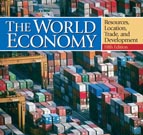US carmakers failed where banks succeeded
 Washington - It was a little more than two months ago that US financial institutions convinced Congress to approve a 700- billion-dollar package to rescue them from the brink of collapse, arguing that the banking sector's survival was critical to the country's wider economy.
Washington - It was a little more than two months ago that US financial institutions convinced Congress to approve a 700- billion-dollar package to rescue them from the brink of collapse, arguing that the banking sector's survival was critical to the country's wider economy.
This week, the United States' three iconic carmakers failed to convince legislators that their industry deserved the same treatment. Senate talks on a 14-billion-dollar bail-out for the industry collapsed Thursday night.
Their argument was much the same as that of the banks. General Motors Corp and Chrysler LLC expect to file for bankruptcy without federal aid and blamed their predicament on a sudden drop in car sales as consumers struggled to get loans. Ford Motor Co warned it too would be in trouble if its competitors fail.
Politicians, labour union leaders and industry executives warned of dire consequences for an economy already in recession. The automotive industry contributes about 4 per cent to US economic output. As many as 3 million jobs could be lost, on top of the 1.9 million already shed in the wider economy over the course of 2008.
"At this moment of great challenge for our economy, we cannot simply stand by and watch this industry collapse. Doing so would lead to a devastating ripple effect throughout our economy," president- elect Barack Obama said Thursday.
There is still hope for the industry. President George W Bush supported the bail-out and has said he wants to avoid a bankruptcy of one of Detroit's Big Three during his last month in the White House.
The Bush administration can choose to use a portion of the 700- billion-dollar financial rescue package, something Democratic legislators have been urging for weeks. Thursday's failure in Congress may force the administration's hand.
But the fact that carmakers could not get legislative approval for a rescue is a telling sign of the US' evolving debate on the current economic recession - and comes back to the financial crisis at the root of the downturn.
Many lawmakers felt they were rushed into a massive bail-out for the financial industry in October on the back of dire warnings of a pending economic collapse, and failed to attach tough conditions or sufficient oversight to the legislation.
The US Treasury was given tremendous leeway and has already earmarked nearly half of the 700 billion dollars for struggling banks. While lending between banks has improved somewhat, consumers are still struggling to get loans and the economy continues to plunge deeper into recession.
Legislators this week slammed Treasury officials during congressional hearings for failing to unblock US credit markets.
When the carmakers' executives first came before Congress in November, their warnings of economic doom were much the same. Yet this time legislators demanded the industry have a viable plan for restructuring their operations before receiving any federal aid.
But skepticism of the car industry bail-out came from other sources too: While the banking collapse was sudden, the troubles of the US carmakers have been well-documented for years.
GM, Chrysler and Ford have steadily lost market share to foreign competitors with lower labour costs and more fuel-efficient cars. Legislators proved skeptical that a "bridge loan" through the current economic crisis was all the carmakers would need to survive.
The car companies' executives also failed to convince enough legislators that their industry was critical to the survival of the wider economy, unlike banks who argued that access to credit was the backbone of US economic growth.
Many Republican senators suggested a forced restructuring under bankruptcy protection might be just what the GM and Chrysler need, and warned that an automotive industry bail-out could prompt a flood of other requests for government funds.
While the financial rescue "was intended to rescue the entire economy, this one is intended to save a single industry," said Senate Minority Leader Mitch McConnell, the top Republican in the chamber.
"A lot of struggling Americans are asking where their bail-out is. They wonder why one business would get support over another," he said.
In the end, Democrats and Republicans failed to agree on just how quick and tough a restructuring process should be forced on the carmakers in exchange for federal funds.
The fate of the US car industry now lies in the hands of the White House. (dpa)